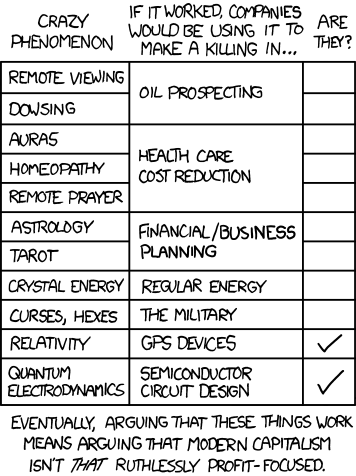NYT: Banks and WikiLeaks
[A] bank’s ability to block payments to a legal entity raises a troubling prospect. A handful of big banks could potentially bar any organization they disliked from the payments system, essentially cutting them off from the world economy.
The fact of the matter is that banks are not like any other business. They run the payments system. That is one of the main reasons that governments protect them from failure with explicit and implicit guarantees. This makes them look not too unlike other public utilities. A telecommunications company, for example, may not refuse phone or broadband service to an organization it dislikes, arguing that it amounts to risky business.
Of course, the net neutrality issue isn’t exactly settled. But the arguments have common roots.
While this does not represent my endorsement of Wikileaks, I think that the treatment they have received at the hands of both the government and business is scary. Nobody has been charged with a crime, and the news organization which have been relaying the leaks have not been targeted. Illegal and extra-legal actions have occurred or been contemplated. Does it not occur to “responsible” politicians and pundits that calling for assassination might be problematic? Due process, anyone? Another example of a-la-carte constitutionality. Does anyone expect that to change with Tea-Partiers arriving in a few days, or are some going to be shocked, shocked that the constitution is again being treated as a document of convenience.
I find myself in an unusual situation with regards to safeguarding information. I work for the Department of Defense and have served in the military, yet I am a scientist. I understand and agree with points on both sides. As scientists, it is pounded into our heads that information should be shared, and that the best thing that can happen is to have lots of smart people looking at a problem. The military view is just the opposite — information is to be compartmentalized so that it does not get out. It’s always a struggle to achieve a balance, because scientists don’t work very effectively when they are cordoned off. Maybe the security trade-off is worth the slower pace, maybe it isn’t. When scientists get together and talk science, they share information. You can’t just be at the receiving end all the time. Younger scientists, just starting out, are included because of the expectation that even if they have nothing to share now, they will be able to do so very soon. If you have nothing to share, you will eventually be cut off. It won’t happen right away — we love to talk about our work and contemplate interesting questions, but it has to be a two-way street. So secrecy has a very strong quenching effect on the ability to do science.
But countries do need to keep secrets. And the big problem I have with Julian Assange and Wikileaks is that they do not seem to be discriminating between secrets that are held because they are covering up behavior — the kind of “Pentagon Papers” information that they are using as a justification for their actions — and the secrets that a government needs to keep. The difference between covering up and giving cover. You show people how the sausage is made if the ingredients are not what is given on the label, otherwise you don’t need to know. Wikileaks is telling us how the sausage is made, regardless. That seems more like poking the anthill for the fun of it than the actions of (to paraphrase Justice Black) a free and unrestrained press exposing deception in government.


